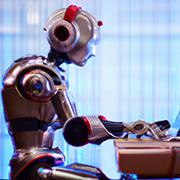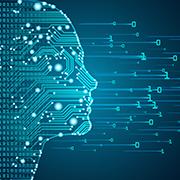Announcing the Awardees of the 2025 TAD Center Research Grants
The grants are given for a broad range of projects in the fields of AI and Data Science, with a total of 3.56 million NIS
06 May 2025
TAD Center is pleased to announce the awardees of the TAD Center Research Grants - Year 2025. This year, 15 regular grants and 6 seed grants will be awarded, with a total of 3.56 million NIS.
The grants are given for a broad range of projects in the fields of AI and Data Science. We thank all PIs who applied for TAD research grants and all the reviewers. We hope the grants will advance innovative research and interdisciplinary collaborations.
Full Grant Awardees:
- Ariel Lellouch (Geophysics) and David Mendlovic (Electrical Engineering)
"Urban Traffic Monitoring with AI-Enhanced Fiber-Optic Sensing".
- David M. Steinberg (Statistics and Operations Research) and Yael Benyamini (Social Work)
"Leveraging a Large Database and Modern Analytics to Assess the Implications of Gestational Diabetes Mellitus for Maternal and Infant Physical and Mental Health".
- Dudu Burstein (Shmunis School of Biomedicine and Cancer Research)
"Super-Resolution Tumor Growth Tracking for Optimized Treatment Selection in Cancer Therapy".
- Elhanan Borenstein (Medicine + Computer Science)
"Phenotype-Driven Parallel Embedding of Multi-Omic Data Integration".
- Gabriel Chodick (Medicine) and Lior Wolf (Computer Science)
"Multimodal Approach for OCT-omics: Personalized Treatment and Failure Prediction in Diabetic Macular Edema (DME)".
- Galit Yovel (Psychological Sciences) and Mor Geva (Computer Science)
"Leveraging Transformers to Uncover Neural Computations in the Human Visual Cortex".
- Genia Rachkovski (Economics) and Analia Schlosser (Economics)
"Data-Driven Decision-Making in High Schools to Improve Achievements, Prevent Dropout, and Efficiently Allocate Resources".
- Or Perlman (Biomedical Engineering) and Jeffrey Hausdorff (Medicine)
"Deep Learning Driven Detection and Characterization of Freezing of Gait Associated with Parkinson’s Disease from Daily Living Videos".
- Ran Darshan (Medicine + Physics) and Amir Globerson (Computer Science)
"Interpretable Recurrent Neural Networks for Modeling Neural Activity and Behavior".
- Ran Gilad Bacharach (Biomedical Engineering) and Uri Obolski (Medicine)
"Pre-train, Predict, Prescribe – Applying Large Models to Optimize Treatments of Infectious Diseases".
- Tal Pupko (Shmunis School of Biomedicine and Cancer Research) and Yishay Mansour (Computer Science)
"Harnessing AI for Efficient Phylogenetic Tree Reconstruction: An Adaptive Deep Reinforcement Learning Approach".
- Uri Nevo (Biomedical Engineering) and Yoav Benjamini (Statistics and Operations Research)
"Leveraging Smartphone Data for Continuous Monitoring in Bipolar Disorder: A Data-Driven Approach".
- Yaron Oz (Physics) and Ady Arie (Electrical Engineering)
"Deep Learning Analysis and Enhancement of Free-Space Optical Communication in Atmospheric Turbulence".
- Yuval Sapir (Plant Sciences) and Itay Mayrose (Plant Sciences)
"Global distribution of flower colors".
- Yuval Nir (Medicine), Israel Gannot (Biomedical Engineering), and Shai Avidan (Electrical Engineering)
"AI-Driven Touchless Pupillometry for Continuous Monitoring in the Neurological Intensive Care Unit".
Seed Grant Awardees:
- Anatoly Khina (Electrical Engineering)
"Information Velocity of Distributed Large-Scale AI Models".
- Dorothee Huschon (Zoology) and Tal Pupko (Shmunis School of Biomedicine and Cancer Research)
"Uncovering Hidden Biodiversity: Leveraging Machine Learning to Identify Eukaryotic Parasites and Symbionts in Discarded Sequencing Reads".
- Erez Etzion (Physics) and Oded Lipschitz (Archeology)
"Beyond the Surface: Ancient Subterranean Settlements Revealed via Archaeology, Muon Tomography, and Machine Learning Imaging".
- Mor Geva (Computer Science) and Liad Mudrik (Psychological Sciences)
"Belief-Formation and Action Selection in Large Language Models".
- Tom Schonberg (Neurobiology and Biochemistry) and Jonathan Berant (Computer Science)
"Can GenAI be used to enhance human decision making?".
- Yoav Ram (Zoology), Shay Rotics (Zoology), and Orr Spiegel (Zoology)
"acc2vec: Developing a Self-supervised Transformer Model for Identification of Animal Behaviors from Accelerometer Data".
Congratulations to the Awardees!
We thank all the reviewers and the grant committee:
Prof. Daniel Nevo, Prof. Meir Feder, Dr. Moni Shahar, Prof. Saharon Rosset and Dr. Shiri Stempler.





